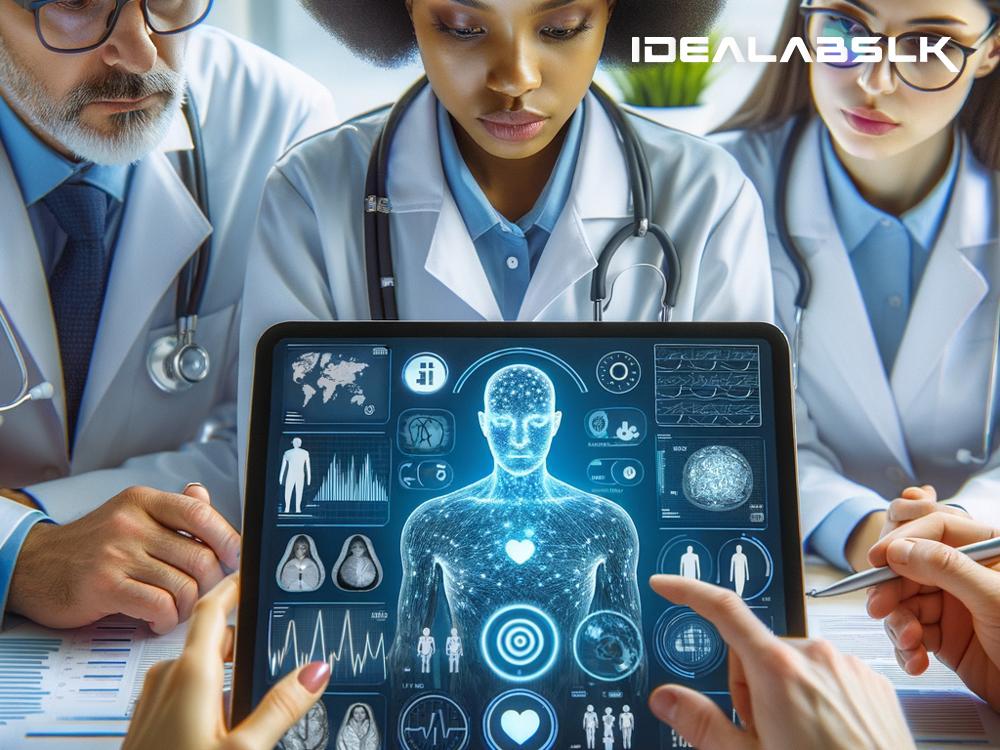Title: How Technology is Speeding Up Diagnoses: A Look at AI and Big Data's Role
In the world of healthcare, time is often the most critical factor. The quicker a doctor can diagnose a problem, the sooner a patient can begin treatment, leading to better outcomes. Thanks to advancements in technology, particularly through Artificial Intelligence (AI) and Big Data, doctors are now making faster and more accurate diagnoses than ever before. But how exactly are these technologies changing the game? Let’s break it down into simpler terms.
A Brief Introduction to AI and Big Data
Before diving deep, let's quickly understand what we mean by AI and Big Data. AI, or Artificial Intelligence, refers to computers or machines performing tasks that typically require human intelligence. This can include understanding natural language, recognizing patterns in data, or making decisions.
Big Data, on the other hand, is a term for large and complex data sets that traditional data management tools cannot handle. This can include information pulled from electronic health records, wearable technology, and even genetic testing.
Both AI and Big Data are reshaping how we approach healthcare, especially in making diagnoses.
The Role of AI in Diagnoses
AI is like a supercharged partner for doctors. It can sift through vast amounts of medical data in seconds, identifying patterns and providing recommendations that a human might take hours or days to conclude. For instance, AI algorithms can now read and interpret medical images like X-rays, MRIs, and CT scans with precision that rivals or even surpasses human radiologists.
Moreover, AI can keep learning and improving. Every new piece of data fed into an AI system can help it make more accurate predictions in the future. This means that AI's capability to assist in diagnoses will only get better over time.
Big Data: The Backbone of Modern Diagnoses
While AI is the brain, Big Data is the body that supports it. The sheer volume of data available in healthcare—from patient records to worldwide health studies—provides a rich foundation for AI systems to learn from and make predictions.
For example, by analyzing patterns from thousands of patients' health records, AI can start to predict which symptoms are likely indicators of specific diseases. This can be especially helpful in diagnosing rare conditions that a general practitioner might not encounter often.
Big Data also allows for more personalized medicine. Instead of a one-size-fits-all approach, doctors can use data analysis to determine the most effective treatment plan for each individual based on their unique health data.
Real-world Applications
The combination of AI and Big Data is not just theoretical; it's already making a significant impact in real-world diagnoses. Here are a couple of examples:
-
Cancer Detection: AI algorithms can identify cancerous tumours in images with a high level of accuracy, often detecting cancer at earlier stages than traditional methods. Early detection is critical in treating cancer effectively.
-
Heart Disease Prediction: By analyzing patient data and identifying patterns, AI can predict which patients are at a higher risk of heart disease, allowing for early intervention.
The Future and Challenges Ahead
The potential for AI and Big Data in healthcare is enormous, but it's not without challenges. Issues such as data privacy, the need for robust data security measures, and ensuring AI systems are unbiased and equitable are critical concerns that need addressing.
Additionally, there's the task of integrating these technologies into the existing healthcare infrastructure, which can be slow and resistant to change.
Despite these challenges, the benefits of AI and Big Data in helping doctors make faster diagnoses are clear. As technology continues to evolve, we can expect healthcare to become more efficient, predictive, and personalized.
Conclusion
The impact of AI and Big Data on healthcare diagnostics is a prime example of how technology can make a real difference in our lives. By enabling faster, more accurate diagnoses, these technologies are not just improving healthcare efficiency; they're saving lives. As we continue to navigate the possibilities and challenges of integrating AI and Big Data into healthcare, one thing is certain: the future of medicine is brighter and smarter than ever before.

